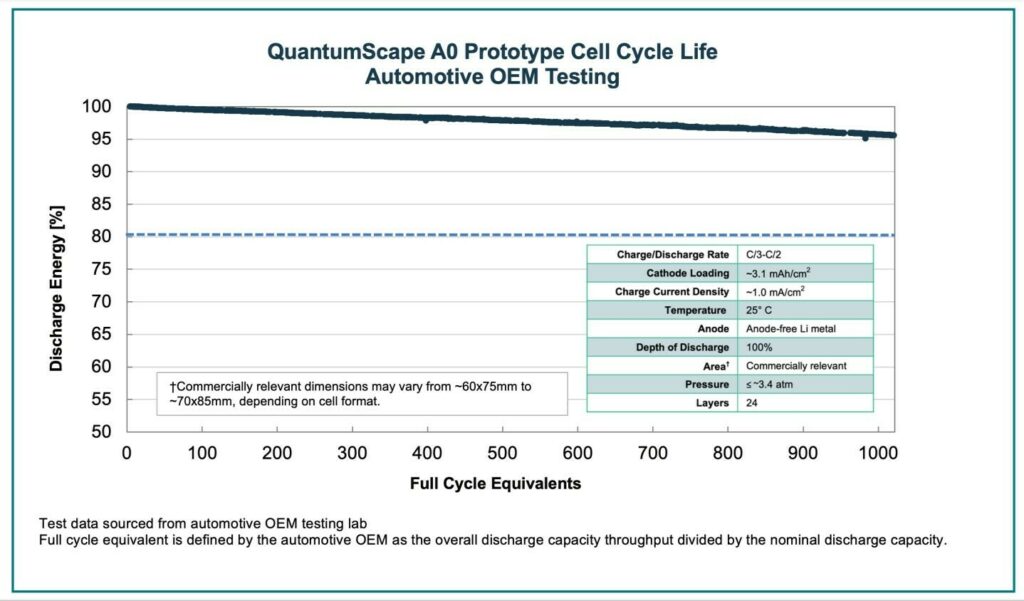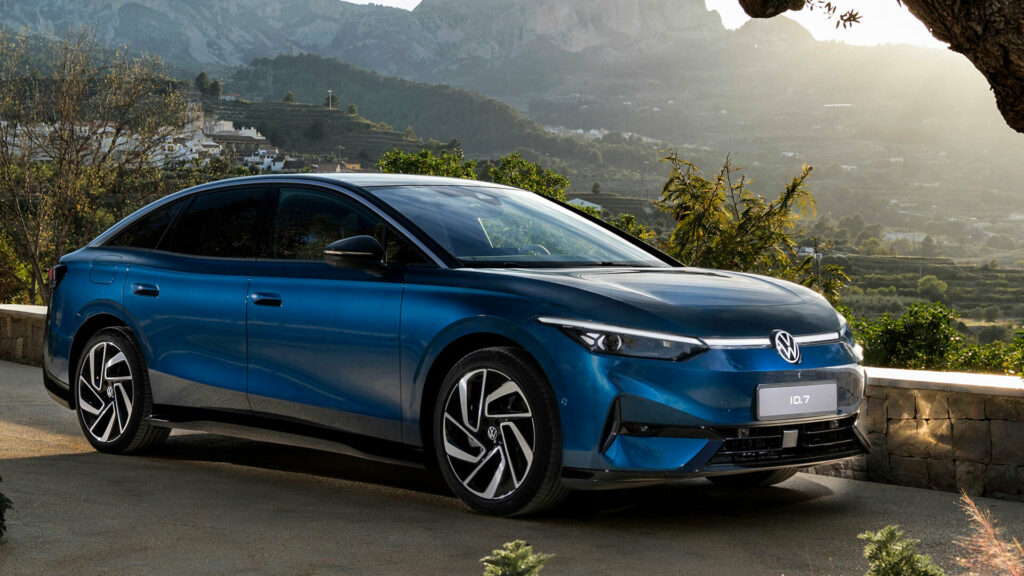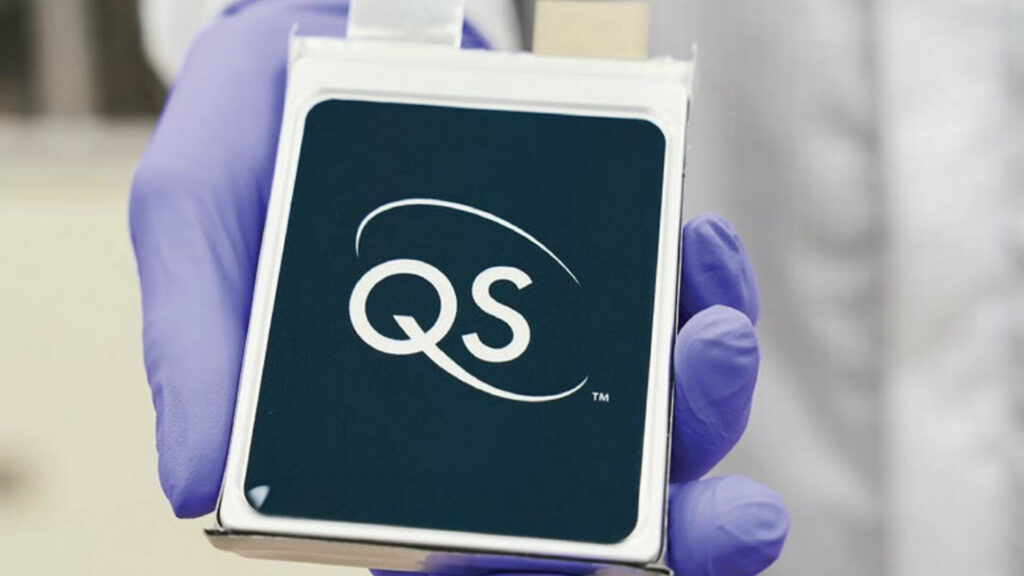Solid-state batteries are set to transform electric vehicles and QuantumScape has revealed their battery has “significantly exceeded performance requirements” during testing by Volkswagen.
According to the battery firm, the prototype was subjected to more than 1,000 charging cycles and this barely made a dent as the cell retained more than 95% of its original energy capacity. The company claimed this is the “equivalent to an EV driving 300,000+ miles (482,803 km) without any noticeable loss in range.”
That being said, QuantumScape’s target remains 800 cycles with 80% energy retention. However, the tests are encouraging as the firm noted the prototype cell has the same number of layers and uses the same proprietary cell format as their first production-intent battery cell, which is known as the QSE-5.
More: Toyota Shows Electric Crown And New Solid-State Batteries With Up To 932 Miles Of Range

QuantumScape said months of testing conducted by Volkswagen’s PowerCo labs “demonstrate the performance potential of solid-state lithium metal batteries – which promise longer ranges, shorter charging times, and maximum safety – compared to both traditional lithium-ion batteries and other next-generation batteries currently under development.” The company also noted the results “far surpass the industry standard of completing 700 charging cycles while retaining 80% battery capacity.”
PowerCo CEO Frank Blome said, “These are very encouraging results that impressively underpin the potential of the solid-state cell. The final result of this development could be a battery cell that enables long ranges, can be charged super-quickly, and practically does not age.”
While solid state batteries are still a ways off, QuantumScape said they’re working tirelessly with the Volkswagen Group to bring them to market as “quickly as possible” as part of their joint venture. Volkswagen was an early backer in the firm, which had planned to begin large-scale production of solid-state batteries by 2025. However, the company is now aiming to have “higher-volume B samples” ready next year.





